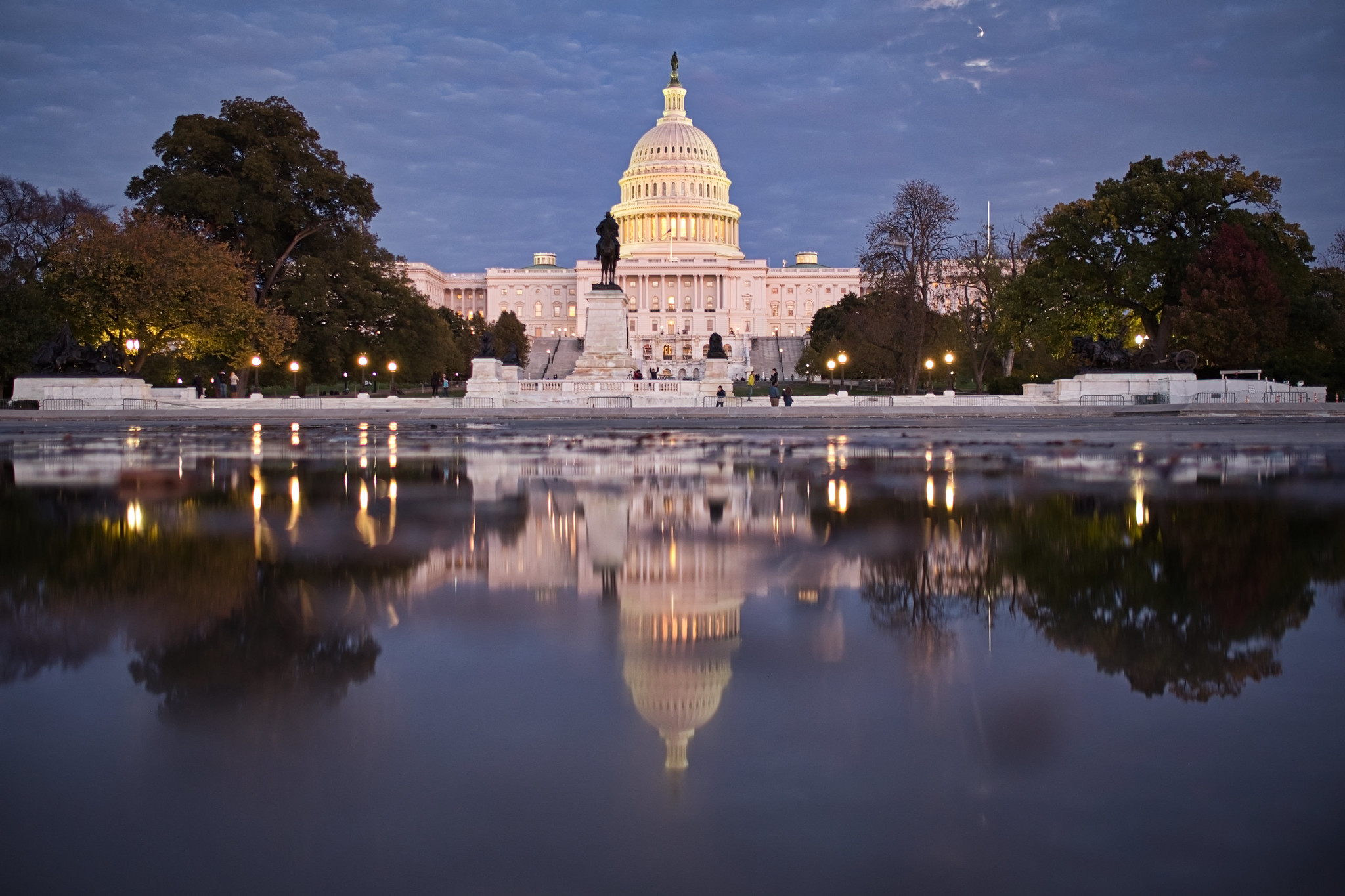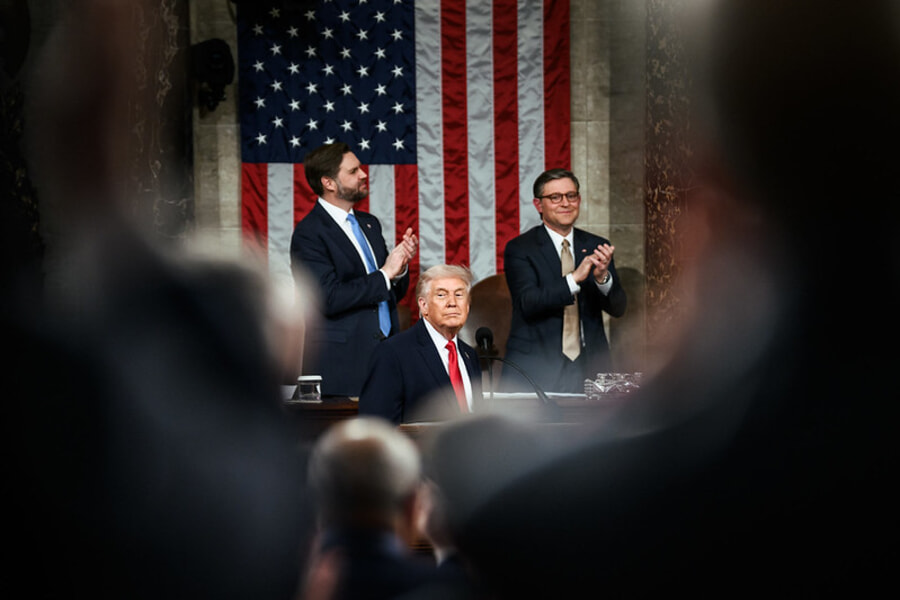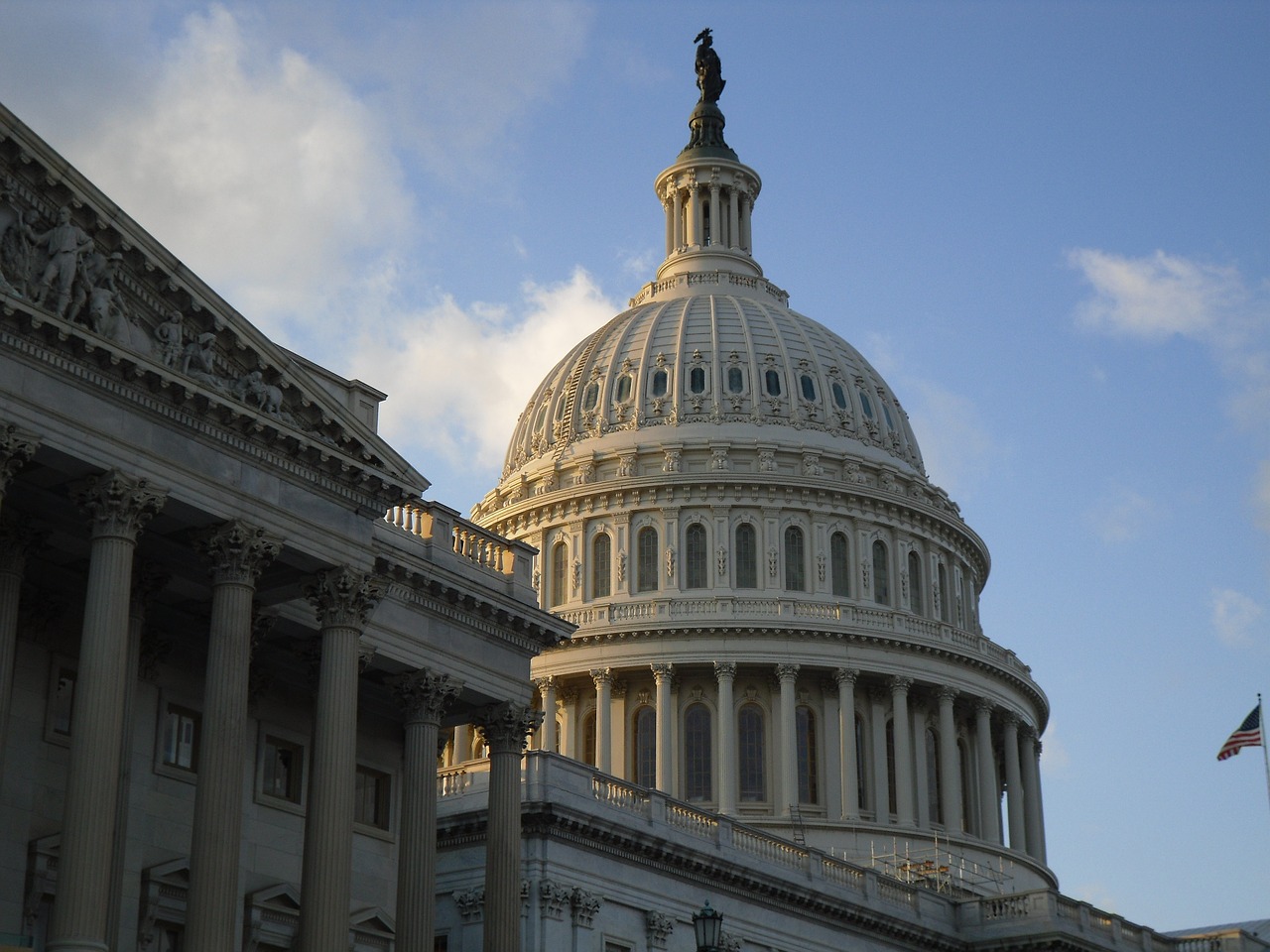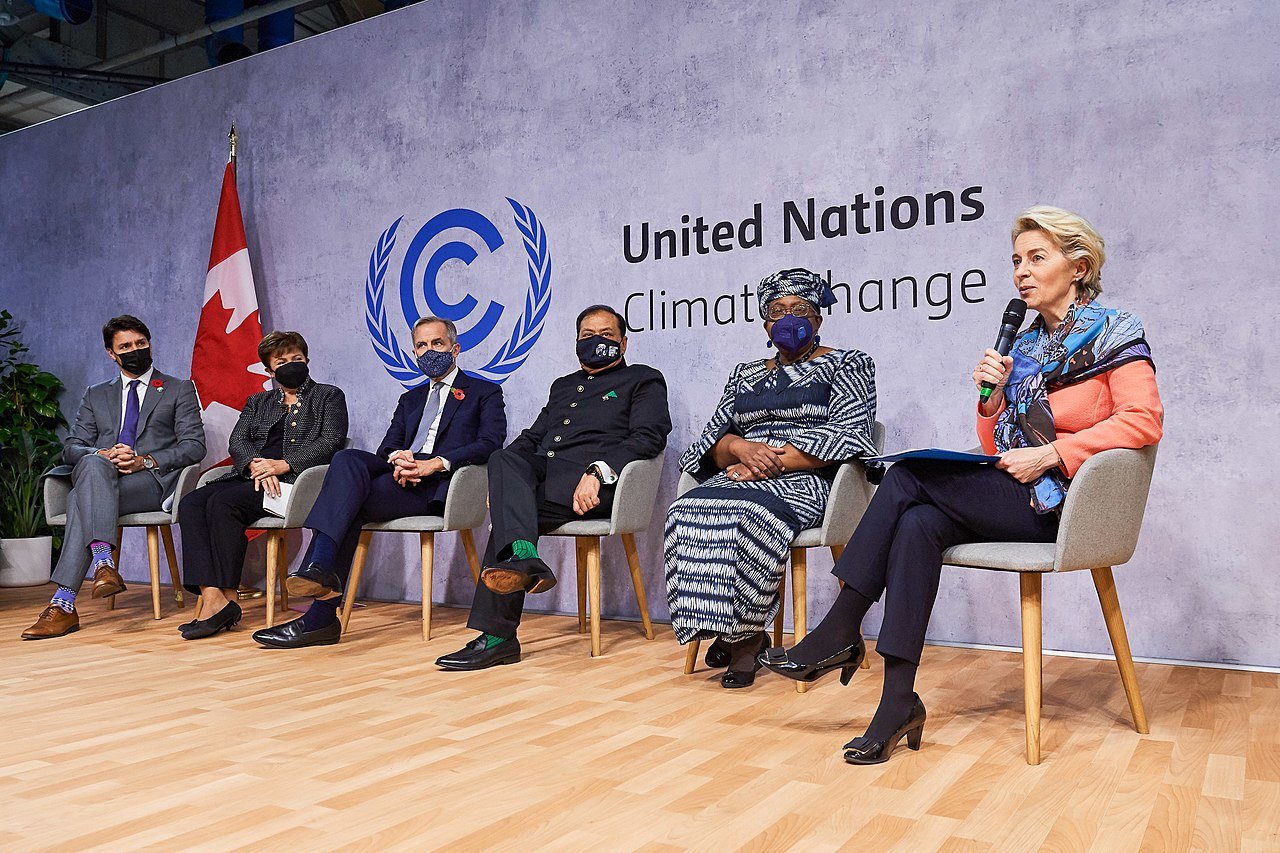Why the McGahn Agreement Is a Devastating Loss for Congress
The agreement is a lost opportunity that may not represent itself again for quite some time.

Over two years ago, the release of Special Counsel Robert Mueller’s report on Russian interference in the 2016 election focused the spotlight on President Trump’s longtime White House counsel, Don McGahn, whose testimony to the special counsel’s office featured prominently in the report’s discussion of potential obstruction of justice by Trump. And McGahn’s close proximity to the president during the relevant time periods made him the crucial witness to the president’s intent and actions. But that same proximity to the president also created problems for the House Judiciary Committee’s subsequent investigation. Last week, the committee and McGahn reached an agreement, committing McGahn to testifying and ending the litigation.
As Quinta Jurecic and Benjamin Wittes have recently described, the McGahn saga and litigation has taken a somewhat tortuous path. Relying on a long-standing—but ever-evolving—executive branch doctrine known as testimonial immunity, Trump directed McGahn not to comply with the committee’s subpoena. And McGahn, though he was a private citizen at that time, complied with Trump’s direction. Confronted by that intransigence, the House Judiciary Committee, as authorized by the full House, sued McGahn in August 2019, asking the courts to order him to comply with the subpoena and appear for testimony. The suit had all the bearings of a historic interbranch dispute, raising fundamental questions about the respective powers of the president and Congress over information. And it has already produced seven judicial opinions (including dissenting opinions) that variously wrangle with and resolve the immunity issue and thorny antecedent questions about the judiciary’s ability to hear and resolve such interbranch disputes.
But the saga appears to be reaching its conclusion before ever reaching a climax. The agreement between the Department of Justice and the House filed with the court last week will almost certainly end the litigation without judicial resolution of the executive branch’s claim that the president’s advisers are absolutely immune from compelled testimony before Congress. Both on Lawfare and in a paper last year in the Duke Law Journal, I have described the way the executive branch uses internal constitutional doctrines such as testimonial immunity to thwart congressional oversight. The Trump administration used a number of these doctrines aggressively, but perhaps none more so than testimonial immunity. Numerous White House advisers—along with McGahn—refused to comply with investigations related to the Mueller report and, later, defied subpoenas to testify in the House’s first impeachment investigation relating to the withholding of foreign aid from Ukraine.
The fights also raised important antecedent questions about the judiciary’s ability to hear and resolve such suits. Those issues relate to the federal courts’ jurisdiction under Article III of the Constitution and to the courts’ ability to redress the wrongs alleged in U.S. interbranch disputes. They implicate fundamental questions about the role of courts in the United States’s constitutional structure. No doubt, should the case have continued to the Supreme Court, there would have been any number of additional opinions on the antecedent questions of jurisdiction and the existence of a cause of action as well as the central constitutional claim of testimonial immunity. But now, with the agreement signed, these questions return to their previous place of repose—the realm of constitutional ambiguity.
If not answers to these thorny constitutional puzzles, then what is there to take away from this dispute over McGahn’s testimony and the agreement that ended it? House Judiciary Chairman Jerrold Nadler suggested that the agreement represents an end to “an era of obstruction,” and others have similarly opined that the agreement validates congressional oversight authority. But I take a bit of a contrarian view. To me, the McGahn agreement represents an unmitigated loss for Congress as an institution and a lost opportunity that may not represent itself again for quite some time. Moreover, read carefully, the agreement appears to accept, at least implicitly, a robust interpretation of executive privilege.
A Lost Opportunity
A growing chorus of voices is arguing that the entire McGahn affair demonstrates Congress’s folly in turning to the courts to vindicate its institutional interests. As Jurecic and Wittes put it: “In the end, the basic problem here is that litigation is the wrong instrument for resolving these disputes and that Congress itself has disabled the more useful instruments.” Josh Chafetz has been championing this conclusion for some time, arguing that the courts are empowering themselves at the expense of Congress in these suits—and that Congress is complicit in that transfer of power by turning to the courts rather than using its own institutional authority.
I cannot join in that chorus. There is no doubt that the premise of the argument is true. As an empirical matter, lawsuits have proved extremely ineffective and inefficient as a means of enforcing congressional oversight demands. But where I depart is with the conclusion that Congress’s other “institutional” instruments would be more effective and that the only goal of such lawsuits is to enforce a specific oversight demand. Instead, my view is that Congress’s other institutional authorities are just as ineffectual as lawsuits. And lawsuits may be the only method of restoring congressional oversight authority.
By locating its defensive doctrines in the Constitution’s separation of powers—rather than, say, common law privileges—the executive branch retains the ability to thwart almost any attempt at self-enforcement by Congress. The two principal “institutional” powers people typically cite are, first, Congress’s inherent contempt authority—which, a century ago, it used occasionally to imprison recalcitrant witnesses—and, second, Congress’s authority to appropriate money.
With respect to the first, as I explain in my paper, “Congress, faced with a defiant executive branch, likely does not have any mechanism by which to enforce inherent contempt—whether fine or arrest—even if it had the desire to do so. Every option would appear to require the participation of at least some executive branch officials.” And claims that there is historical support for such action do not withstand scrutiny. As Todd David Peterson has written, the “contention that there are historical precedents for the use of Congress’s inherent contempt power against officials who assert the President’s claim of executive privilege is incorrect.”
In terms of the appropriations power, Congress does have ultimate authority over allocations of funds. But the executive branch, through signing statements and internal constitutional comments, has repeatedly made it clear that it will disregard as unconstitutional those spending conditions that would interfere with the executive branch’s conception of executive privilege. Congress’s appropriations statutes cannot override the constitutional foundation on which the executive branch has built its doctrine—in other words, the executive branch wins again there.
Jurecic and Wittes recognize an additional problem with relying on appropriations—that Congress typically passes omnibus appropriations bills and is not likely to shut down the government over an information dispute. But their solution would not seem to get far either. If Congress passed more targeted appropriations or stand-alone legislation that undermined executive privilege, the president could veto those less important bills on constitutional grounds without suffering too much political blowback. (Take, as an example, the OLC Reporting Act of 2008, which the Office of Legal Counsel recommended the president veto as unconstitutional.) Or if Congress attempted to impose conditions on more vital appropriations to particular agencies from which it wanted documents or information—such as those to the Department of Justice—Congress could then be in the position of shutting down the department over an information dispute, which does not seem that much different in kind from shutting down the entire government.
Congress could still attempt these and other tactics to force the executive branch to comply. And perhaps there are ways to be creative with appropriations and force some additional transparency. But I see significant obstacles with any such attempt. The proposed solution that Congress should use its own power rather than rely on the courts sounds much simpler than it would be in practice. Congress would have to come up with a mechanism to apply a legal requirement to the executive branch or an executive branch official and then enforce that requirement in the face of a “unitary” executive branch—the branch that controls the means of enforcement under the Constitution—actively resisting any such enforcement as a violation of the Constitution.
The futility of congressional lawsuits against the executive branch is thus merely representative of Congress’s larger futility in the face of the executive branch’s institutional advantages in information disputes (the principal one being—in the words of then-OLC head William Rehnquist—that the executive branch has a “headstart” because in these disputes it has something Congress wants and needs only to “maintain the status quo” to “prevail[]”). The executive branch’s exhaustive delineation of the president’s inherent constitutional privilege and related doctrines such as testimonial immunity renders Congress largely impotent, even if the legislature were to attempt to revitalize its institutional powers.
The only real opportunity Congress has to combat the executive branch’s constitutional defenses is to eliminate their constitutional basis. And, given that the executive branch is not going to alter its views on constitutional questions simply because Congress asks, the mechanism for eliminating these bases would be to procure a contrary, precedential judicial decision.
The now-prevailing wisdom is that lawsuits against the executive branch are futile and a waste of Congress’s time. But the unspoken premise of that argument is that the goal by which that futility is measured is to prevail in a particular oversight dispute. That is not the only goal, however. And larger institutional interests are always at the bottom of these disputes.
If Congress’s institutional goal is, as Nadler said, to “protect the Committee’s constitutional duty to conduct oversight in the future,” lawsuits are the only route to forcing the executive branch to revisit its constitutional claims. By settling the McGahn case, the House has forfeited what was, as a matter of history, its most advanced and most favorable opportunity since Watergate to cut back on broad assertions of presidential prerogatives over information. The en banc U.S. Court of Appeals for the D.C. Circuit appeared likely to rule that the House had a cause of action to bring the suit, and even Judge Karen LeCraft Henderson—who voted in the executive branch’s favor in the initial two panel decisions—had expressed serious doubts about the doctrine of testimonial immunity.
It is of course possible that the House ultimately would have lost at the Supreme Court on one of the antecedent questions of jurisdiction and the existence of a cause of action—or on the immunity question itself. But it’s far from a guarantee that the Supreme Court would even take up the case, or that the House would lose before the more conservative Supreme Court. The high court resolved, on the merits, Trump’s lawsuit challenging the congressional subpoena to his accounting and financial firms despite the lack of any explicit cause of action, and the Supreme Court has generally not been favorable to claims that the judiciary lacks the jurisdiction to opine on sweeping assertions of unreviewable executive authority. (Prominent examples include Watergate and the post-9/11 detention cases.)
Even if the House ultimately lost, there would then at least be definitive law on the subject that both Congress and the executive branch could rely on as a shared foundation in the future. The current ambiguity of the settlement agreement empowers the executive branch by allowing it to bog down lawsuits by Congress with these thorny antecedent issues and by discouraging Congress from taking decisive legislative action—such as enacting a cause of action—because of the lack of clarity about existing law.
Because of this lost opportunity, the McGahn agreement represents an enormous lost opportunity for Congress—and another oversight victory for the executive branch.
To a political realist, that should not be surprising—after all, the current leader of the party that controls the House is also in charge of the executive branch. And the executive branch has every incentive to retain the ability to assert privilege or claim immunity and block oversight. Even the Biden administration, which includes numerous lawyers who criticized Trump’s obstruction of Congress, understands the value of retaining the doctrines on which Trump relied given the very real possibility that Republicans will take over the House in the 2022 elections and start issuing subpoenas. The House, by contrast, would appear to have every institutional incentive at present to press for judicial resolution of these claims, particularly given the favorable signals from the D. C. Circuit. But political party fealty appears to have taken precedence over the institutional interests of the House.
The House had an opportunity to affect real change in the constitutional doctrine governing oversight, particularly oversight of the White House. And that opportunity arose at a time when the executive branch, through a series of OLC opinions issued during the Trump administration, had just made its most expansive claims of constitutional privilege. Indeed, near the end of the Trump administration, OLC issued a 59-page memo that reaffirms some of the most controversial extensions of the White House’s response to congressional oversight and, in effect, puts the White House largely beyond the reach of congressional oversight. If ever Congress had a chance to convince the judiciary that the executive branch is exceeding its constitutional authority or even convince the executive branch to soften its stance in public court filings given the inclinations of the current administration, the McGahn litigation was that opportunity.
The House chose not to pursue resolution of these long-standing constitutional disputes that have increasingly enfeebled congressional oversight over the past 25 years. Instead, in coming to an agreement with McGahnn, the House chose to be satisfied by voluntary testimony limited to questions and answers that are already public (a concession I am somewhat unimpressed by, as explained below). And, in so doing, it gave the Biden administration an out. The administration did not have to go on record and face the accompanying political scrutiny about the interbranch issues raised in the McGahn litigation—and it avoided having to make any public statements about the immunity of a former adviser to a former president (an issue on which the executive branch has never publicly opined). And the executive branch is free to raise all of the same arguments it raised in the McGahn case the next time a dispute arises. The House’s choice to take this path is understandable as a matter of party politics—but baffling as a matter of institutional interest.
Executive Privilege in the McGahn Agreement
In the past two years, the question of whether some of McGahn’s testimony could be barred by executive privilege has yet to even be broached because it becomes relevant only if McGahn lacks absolute immunity and has to appear in response to the subpoena. Most conversations with the president are presumptively protected by executive privilege under United States v. Nixon. And, as I explained after the release of the Mueller report, that privilege would not be waived by McGahn’s testimony to the special counsel or even by the public release of the Mueller report. The precise information released in the Mueller report would no longer be subject to executive privilege of course—executive privilege covers only confidential, internal executive branch information and does not apply to information released publicly. But everything else that the House might want remains subject to a potential assertion of executive privilege by the president. Indeed, Trump made a protective assertion of executive privilege over all the documents related to the special counsel’s investigation.
The terms of the agreement are relatively straightforward. McGahn will voluntarily appear to testify before the committee in private and will not be under oath. (He could still be prosecuted for lying to the committee, however.) He will be accompanied by his private counsel as well as counsel for the Justice Department. The scope of his testimony is exceedingly narrow. The committee may ask only about “[i]nformation attributed to Mr. McGahn in the publicly available portions of the Mueller Report and events that the publicly available portions of the Mueller Report indicate involved Mr. McGahn.” The agreement provides explicitly that “[c]ommunications between Mr. McGahn and other Executive Branch officials that are not disclosed in the publicly available portions of the Mueller Report are outside of the scope of the interview.” And with respect to executive privilege, the agreement states:
No assertions of executive privilege will be made with respect to information provided by Mr. McGahn to the Special Counsel and attributed to Mr. McGahn in the publicly available portions of the Mueller Report. But counsel from the Department of Justice otherwise retain the right to assert executive privilege. The Committee retains its rights to challenge any assertion of privilege.
Notably, the motion filed with the court is explicit that “former President Trump, who is not a party to this case, is not a party to the agreement regarding an accommodation.”
According to the terms, then, McGahn has agreed to testify only about information “provided by McGahn to the special counsel” and “attributed to McGahn in the publicly available portions” of the report; he will not testify about any conversations within the White House or executive branch that were not disclosed publicly in the report. And although the scope of the interview includes events described in the publicly available portion of the report that involved McGahn, that category largely overlaps with the first since the special counsel asked McGahn about the relevant events already.
Nadler’s enthusiasm about the deal misrepresents the terms of the agreement. He commented that the agreement “satisfies” the committee’s subpoena because “Mr. McGahn will respond to questions about Special Counsel Robert Mueller’s investigation, allegations of obstruction of justice, and former President Trump’s attack on Mr. McGahn’s credibility.” McGahn will likely not say anything that he is not already quoted as saying in the special counsel’s report.
This limited scope of McGahn’s testimony appears to track the narrowest view of what information is no longer protected by executive privilege. Not even the most ardent advocate of an expansive view of executive privilege would likely argue that it protects information that is no longer confidential; the entire premise of the privilege is that certain information must be kept confidential because its disclosure would harm the public interest. The executive branch thus did not “compromise” any claim of executive privilege by acknowledging that executive privilege is not available for information that is already public.
But by agreeing to such a narrow scope to the interview and expressly granting counsel from the Justice Department the “right to assert executive privilege,” the committee, however, appears to have implicitly conceded a great deal. The committee did purport to retain its rights to challenge any assertion of privilege, but that applies only to objections based on executive privilege—not to objections based on the scope of the agreed-to testimony. And it is the scope of the agreement that protects against questioning McGahn beyond what is already public in the Mueller report—this blocks questioning about information that the executive branch would normally seek to shield under the doctrine of executive privilege. In a sense, the committee has done the executive branch’s job for it by defining the scope of the testimony in a way that prevents the questioning from straying into any area that might implicate executive privilege.
The committee agreed to do so despite serious questions about whether executive privilege protects that information. There is a legitimate argument that executive privilege is not available to protect the other information McGahn may possess because it relates to government misconduct. Talking about the deliberative process privilege—one of the “components” of executive privilege in the executive branch’s view—the D.C. Circuit has noted: “[W]here there is reason to believe the documents sought may shed light on government misconduct, ‘the privilege is routinely denied,’ on the grounds that shielding internal government deliberations in this context does not serve ‘the public interest in honest, effective government.’” And a number of past OLC opinions similarly recognize that executive privilege does not protect information related to misconduct or wrongdoing.
Moreover, Congress has consistently staked out its unyielding view that the constitutional executive privilege protects only presidential communications. Although the executive branch asserts that executive privilege protects other “component” privileges as well—including the often controversial deliberative process privilege—Congress views it as much more limited. The McGahn agreement indiscriminately shields from questioning communications between McGahn and all other executive branch officials, whether or not those communications fall within the presidential communications privilege. In other words, the scope of the interview agreed upon in the deal seems again to track the lines of confidentiality that the executive branch would normally assert, not the ones typically pressed by Congress.
To me, the agreement appears designed to allow the House Judiciary Committee to claim victory—as Nadler did—without offering it anything of substance. And the narrow scope of the testimony appears carefully crafted to placate the executive branch and ensure no executive privilege controversies arise.
That fact may explain the curiosity that Trump is not party to the agreement. The ability of a former president to assert executive privilege is far from clear, particularly if the current president opposes such an assertion. But both existing regulations and the Supreme Court’s decision in Nixon v. Administrator of General Services recognize that former presidents retain some interest in protecting the confidentiality of the information related to their service. The fact that Trump was not involved in the agreement also represents a break from past practice. In 2009, after President Obama took office, pressure from the White House reportedly led to a settlement in similar litigation over testimony from former Bush White House advisers. In contrast to the McGahn agreement, however, acceptance from Bush’s representatives was considered necessary to that agreement. By permitting only counsel from the current Justice Department to assert executive privilege, the McGahn agreement could be interpreted to solidify the primacy of the current president with respect to any claim that information from a former president’s term is privileged. This has the consequence of potentially making it more difficult for former presidents to protect their confidentiality interests in the future.
But I think there is a more banal explanation for the agreement. The narrow scope of the interview renders any potential executive privilege claim largely improbable. That protects the agreement against the wild card of Trump’s intervention (and attempts at scorched earth obstruction) if a question of privilege arises. So the House seems to have agreed to compromise on its view of executive privilege in order to avoid another confrontation with Trump. If privilege does become an issue despite the narrow scope of the interview, I would expect Trump’s representatives to be consulted. Such consultation is contemplated by the current regulations governing presidential documents and would very likely be extended in the case of testimony as well.
A Win for Congress?
In reality, the committee did not vindicate any oversight authority or interest in the McGahn agreement. White House advisers have repeatedly appeared voluntarily to testify before Congress. That is all McGahn is doing. His appearance has no bearing on the executive branch’s ability to refuse to provide such voluntary compliance. And the committee gave up its ability to question McGahn about information related to the events described in the Mueller investigation but not publicly disclosed in the report, despite the fact that the committee likely had reasonable arguments that some of that information would not be protected by privilege.
Jurecic and Wittes count it as a loss for the executive branch that it “spent two years litigating … in order to get an accommodation that was almost certainly available to it at the time the subpoena was issued.” I would respectfully disagree. To begin with, I seriously doubt the committee would have accepted anything close to this narrow of a scope for McGahn’s testimony at the time when it issued the subpoena; nor would it have allowed McGahn to avoid testifying under oath. More importantly, however, even if this accommodation were available at the time the subpoena was issued, the executive branch procured an enormous victory—arguably a total victory—by disabling Congress’s oversight authority until the inquiry no longer had relevance. Remember, the committee claimed at the time that it was beginning an investigation to consider impeachment based on the Mueller report and needed McGahn’s testimony for that purpose. His testimony certainly will have no such purpose now.
In reissuing the subpoena for McGahn’s testimony after the election, Nadler did claim that the committee now sought the testimony to “consider legislative responses and other proposals to restore historical norms going forward.” But it seemed clear at the time that the only reason to reissue the subpoena for McGahn’s testimony was to allow the lawsuit to continue. (Had the subpoena expired, the case would have been moot.) There does not seem to be any reason the committee would need McGahn to personally appear and recount what is already publicly detailed in the Mueller report to consider legislative reform.
From an institutional perspective, if the executive retains the authority to stymie congressional oversight until it is convenient to provide some limited information that has largely become irrelevant, the executive branch has won. A study of the historical examples of executive privilege claims reveals that the information—or parts of it—almost always gets released to Congress eventually. The power of the privilege is claiming the authority to decide when that happens. Indeed, the very first “invocation” of executive privilege—by George Washington in relation to the failed St. Clair expedition—did not result in the withholding of any information. Washington claimed the authority to withhold if he wanted to, and then he turned over the information.
If the “battle” was over whether McGahn would appear and testify before a congressional committee, then the House Judiciary Committee “won.” But viewing his appearance as the real battle is shortsighted. The fundamental battle is over the respective authorities of the two branches of government in these information disputes. And the executive branch won that battle. Again.
After this agreement, Congress still lacks the authority to compel McGahn’s testimony or the testimony of any presidential adviser. It has relinquished any claim to authority to question McGahn about anything beyond information that has already been made public. It has lost any opportunity to challenge the executive branch’s view of privilege or testimonial immunity in court. And it has acknowledged the continued ability of the current Justice Department to assert privilege over this information. Nadler and others have industriously carved out a narrative that this represents a “win” or validation for Congress. But I am not convinced.





